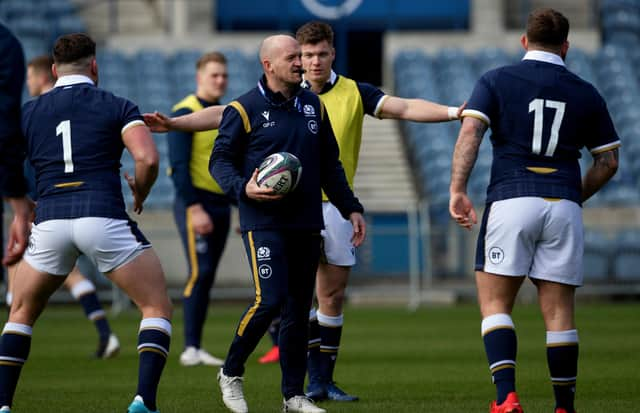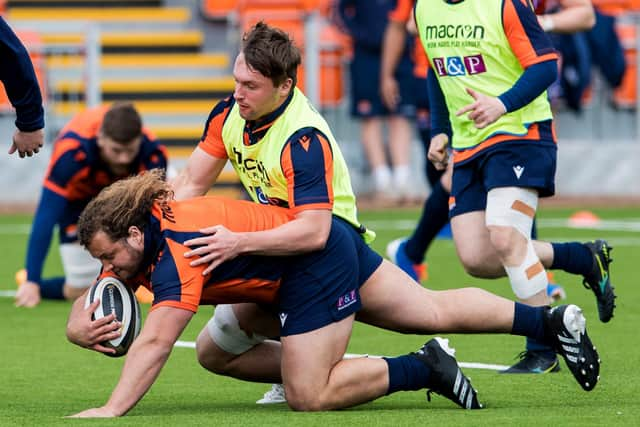Why World Rugby wants full-contact training limited to 15 minutes per week


The new guidance has been published by World Rugby and International Rugby Players (IRP) following a global study of almost 600 players across 18 elite men’s and women’s competitions.
Aimed at reducing injury risk and supporting short- and long-term player welfare, the recommendations suggest a maximum of 15 minutes full contact training per week – across two days – and with both Mondays and Fridays having zero full contact training to allow for recovery and preparation.
Advertisement
Hide AdAdvertisement
Hide AdControlled contact training is suggested to be limited to 40 minutes per week with at least one day of zero contact of any type while live set-piece training will be at no more than 30 minutes per week.


Dr Eanna Falvey, chief medical officer at World Rugby, said: “Our immediate priority is to get teams to adopt the guidance, and the positive feedback we have received indicates that they will.
“By monitoring their adoption, including using Prevent biometrics’ instrumented mouthguard technology, we will be able to review and identify any further opportunities to advance welfare outcomes.”
Elite teams such as Leinster, Clermont Auvergne and Benetton Treviso have signed up and they have partnered with World Rugby to measure the effect of these guidelines by using specific mouthguards to monitor implementation and measure the outcomes.
Leinster coach Stuart Lancaster was on World Rugby’s advisory group for contact load along with former All Black Conrad Smith, now head of player welfare at the governing body.
“We have a responsibility to make the game as safe as possible for all our players,” said Lancaster, the former England head coach.
“For coaches, optimising training plays a significant role in achieving that objective. It is important that we do not overdo contact load across the week in order that players are fresh, injury-free and ready for match days.
“These guidelines provide a practical and impactful approach to this central area of player preparation and management.”
Advertisement
Hide AdAdvertisement
Hide AdThe recommendations are based on a comprehensive review of the latest injury data and while training patterns vary across competitions, on average full contact training currently lasts 21 minutes per week and the average total contact load per week is at 118 minutes.
Incidences of training injuries are relatively low to that of matches, but the volume of training performed means a relatively high proportion, 35 to 40 per cent, of all injuries during a season occur in training, with the majority of these soft tissue injuries.
Joe Schmidt, the former Ireland coach who is World Rugby’s director of rugby and high performance, said: “Training has increasingly played an important role in injury-prevention as well as performance.
“While there is a lot less full contact training than many people might imagine, it is our hope that having a central set of guidelines will further inform players and coaches of key considerations for any contact that is done during training.”
National players’ associations, national unions, international and domestic competitions in addition to top coaches and clubs are understood to be behind the guidance, which also considers the overall load for players of a particular age or injury profile and will feature in men’s and women’s Rugby World Cup player welfare standards.
Get a year of unlimited access to all The Scotsman's sport coverage without the need for a full subscription. Expert analysis of the biggest games, exclusive interviews, live blogs, transfer news and 70 per cent fewer ads on Scotsman.com - all for less than £1 a week. Subscribe to us today
Comments
Want to join the conversation? Please or to comment on this article.
